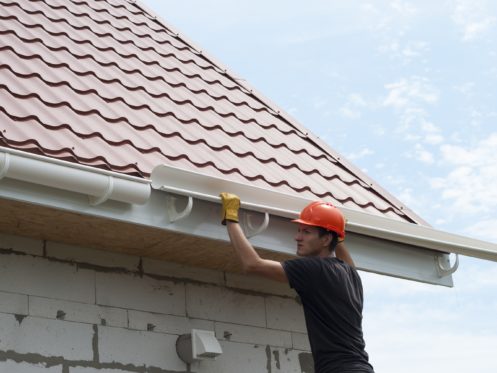Fall ushers in great temperatures and vibrant colors and serves as a harbinger that winter is around the corner. The frigid temperatures in winter can wreak havoc on your plumbing system. So, it’s a good idea that you prepare early enough for the changing season. Implement the plumbing tips below to prevent problems associated with freezing temperatures.
1. Disconnect the Outdoor Hose
Start by detaching any garden hoses from the faucets. Constant freezing and thawing during the cold season can crack the rubber hoses. A connected frozen hose will also damage the faucet. After disconnecting, ensure that you drain off any remaining water in the hose before storing it in an area in your house that won’t reach freezing temperatures.
2. Check Outdoor Faucets for Leaks
After removing the hose, inspect the outdoor faucet for leaks and repair them. A leaking faucet could lead to severe plumbing issues and water damage during the winter. Locate the shut-off valve for the outdoor faucets. Cut off the water supply to the outdoor spigots and open them to drain any remaining water that could freeze. You can further protect the outdoor faucet from the cold by covering it with Styrofoam.
3. Insulate Pipes in Unheated Areas
Exposed piping can cause freezing problems during winter. Ensure that you insulate any pipes in the garage, crawlspaces, or unheated basement to avoid such issues. You can use heat tape or other thermostat-controlled cables to cover the pipes and ensure they are no longer in contact with cold surfaces. This will prevent the pipes from bursting, which calls for expensive repairs or replacement. As you insulate the lines, remember to seal off any gaps in your house that allow cold air penetration. Keep in mind that most pipes are usually between walls, and if poorly insulated, they will freeze and burst. So, caulk or weather-strip the spaces where the lines enter your house.
4. Clean and Inspect the Sump Pump
The sump pump is vital equipment that moves water from your basement to keep the area under your house dry. This will protect your foundation and prevent mold and mildew growth. If you have a sump pump, fall is the best time to clean and inspect it to ensure it’s in the right working condition. During winter, the ice may melt, and you could end up with a wet basement if you fail to take care of the sump pump.
Pour some water into the sump pit, and it should turn itself on. If it fails to pump out the water, call a professional to diagnose and fix the issue. Remember also to clean the sump pump. Disconnect it from the power source, spray it with a hose to remove any stuck debris, rinse, and drain the check valve. You can remove any standing water in the pit with a shop vac and then reconnect the unit. Check the discharge line for damage to avoid flooding. It’s also a good idea to insulate the sump pump since exposure to extremely low temperatures can cause freezing.
5. Clean the Gutters
The gutters play a crucial role in channeling rainwater away from your house. Clean the gutters before winter to prepare them for increased water flow and snow. In fall, there are leaves everywhere, and they might end up accumulating on the gutters. Such debris will prevent water flow during winter, and it will freeze on the gutters. When the snow starts to thaw, water may seep into your house through the roof. The freezing water can also cause the gutters to sag due to the additional weight, and they might fall in extreme conditions. Neglected gutters encourage the formation of ice dams that can damage your roof and the entire house. You will end up incurring high repair and replacement costs.
6. Plan for Water Heater Maintenance
Your water heater will probably need to work overtime throughout winter. If you want to enjoy an uninterrupted supply of hot water, get your water heater professionally inspected during fall. The plumber will check the anode for rust and replace it when need be. They will also clean out any excess sediments in the tank that can inhibit its functionality. Flushing the tank will get rid of the mineral buildups to increase the efficiency of your unit and prolong its life span. Have the professional also inspect the temperature pressure regulator to ensure that it’s working optimally.
As the weather cools down, the plumber may advise you to insulate the tank and pipes leading away from the water heater to prevent heat loss and save on utility bills. After this, the plumber will adjust the water heater temperatures for maximum efficiency. If you have an outdated unit, the professional may recommend that you install a new and efficient model to avoid frustrating breakdowns in the middle of the winter season.
7. Inspect the Sewer Line
When the temperatures dip during winter, the ground conditions also change. The ground surface often freezes and thaws, and such shifts can affect the sewer line. Once the temperatures get so low, the pipes can also freeze, causing drainage problems. Fall is, therefore, the best time to clean and inspect the sewer system to prepare it for winter. Check for leaks throughout the sewer line. Remember that even a tiny crack can lead to extensive leaks in winter as the pipes tend to contract and expand irregularly. So, fix such cracks early enough. Pay more attention to lines crossing through planted areas since the roots can intrude on small cracks causing a blockage. Also, the festive season in winter may take a toll on your sewer system due to increased waste between cooking and bathroom usage. You wouldn’t want to experience sewer problems at such times that call for emergency repairs, so have the system professionally serviced.
Seek Professional Plumbing System Maintenance Services
Plumbing is an essential system in your house. Blockages, leaks, or any other issues can severely damage your property, calling for expensive repairs. Therefore, you should take good care of your plumbing system so it can serve you reliably for years to come. The best time to plan for preventive maintenance is during fall. In these periods, plumbers are less busy with emergency calls, and you will have enough time to diagnose and fix even the most time-consuming issues. An experienced plumber can also spot problems within your system early enough and advise on the best cause of action to prevent more issues in the future. In case of a blockage, a plumber has the right tools to dislodge it and lower the chances of recurrence.
Performing regular maintenance will also help increase water pressure and save on utility bills. If you plan to leave your house for winter vacations, shut off the water supply to your home, drain all the pipes fully, and set your thermostat between 50 and 60 degrees. This will help prevent pipe freezing.
Should you need a professional to maintain your plumbing system this fall, reach out to Tarpy Plumbing, Heating & Air. We offer high-quality plumbing repair and water heater services in San Diego, CA, and the nearby areas. Our company also handles furnace inspection, AC repairs, indoor air quality, and drain cleaning services. Contact us today and request our services.


 SPECIALISTS
SPECIALISTS

